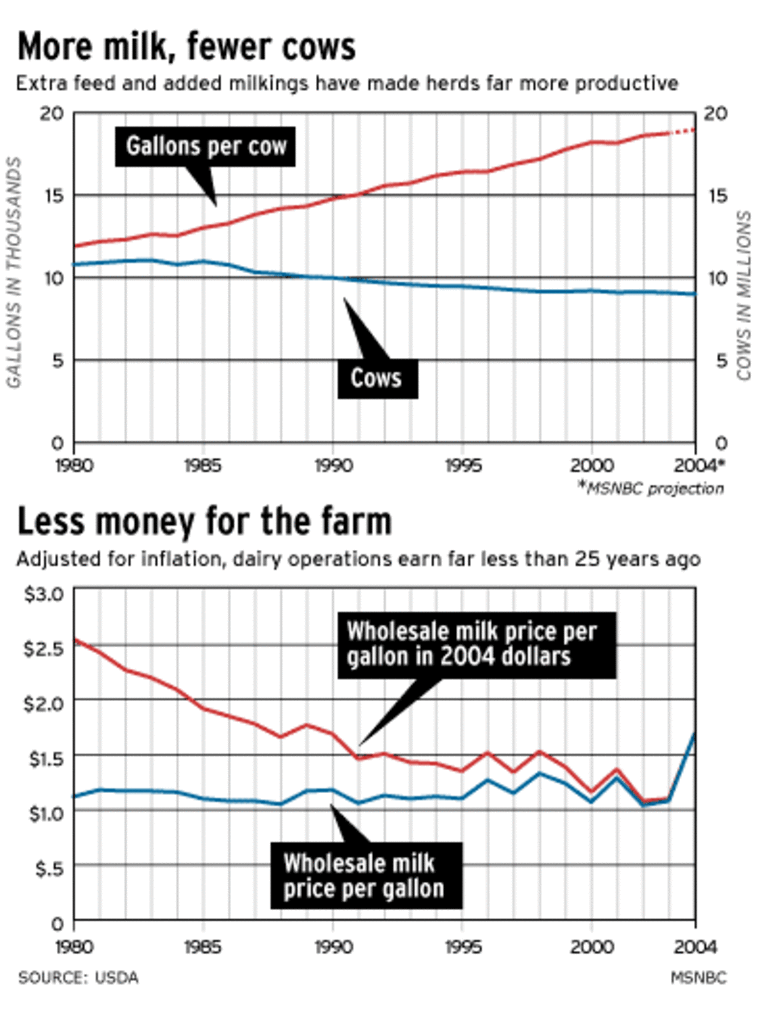Dairy farmers are being paid more for their milk -- and consumers are paying more at the store -- thanks to a dairy industry insider's well-timed purchases of cheddar cheese on the Chicago Mercantile Exchange, according to a published report.
Gary Hanman, chief executive of the Dairy Farmers of America, made the purchases on the obscure and essentially unregulated cheese exchange to keep cheese prices from falling, which in turn means dairy farmers are paid more for raw milk, the Chicago Tribune reported in Thursday's editions.
By curbing cheese price drops several times this year, Hanman told a group of dairy farmers in New York that Dairy Farmers of America added about $1.3 billion to dairy farmers' milk checks, $278 million of which went to members of his group.
The group is the nation's largest dairy cooperative, representing about 23,000 farmers.
Hanman would not discuss his strategy with the Tribune, but the paper obtained a tape of his October speech to dairy farmers.
Hanman did not return telephone calls seeking comment Thursday from The Associated Press.
His strategy involves the cooperative's purchase of hundreds of truckloads of cheddar each year, timed to influence the price of cheese as much as possible, the Tribune reported.
Though the amount of cheese purchased is relatively small, transactions at the exchange help set the price of cheese and milk across the nation.

Critics say the dairy group's strategy raises questions about the integrity of the system for pricing dairy products. When the system relies on factors other than supply and demand, someone, whether it is the consumer, cheesemakers or farmers, is "getting ripped off," said Ed Jesse, a diary economist at the University of Wisconsin at Madison.
"It's a situation that smells," he said.
But experts disagree on whether it is improper. The obscure cheese market does not fall under the jurisdiction of the Commodity Futures Trading Commission or any other federal agency.